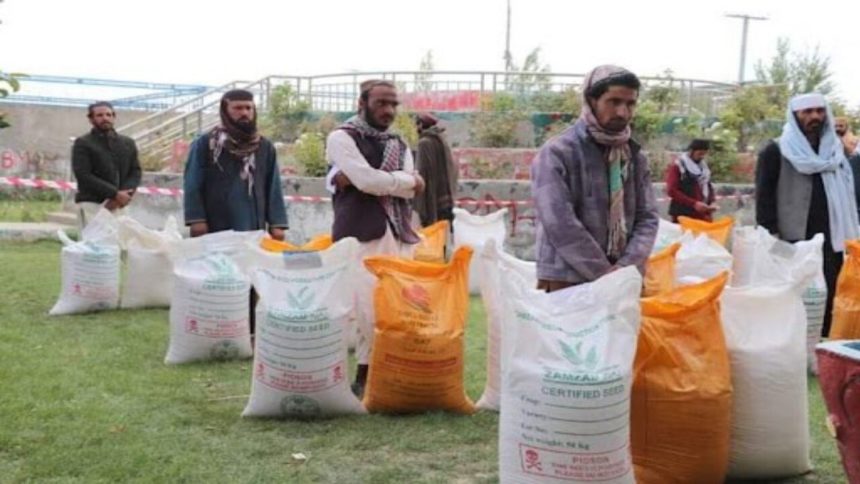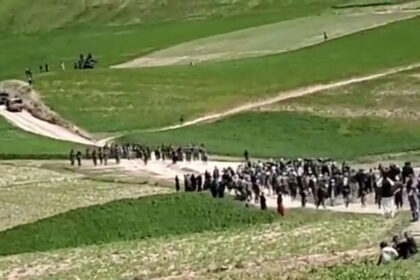RASC News Agency: International humanitarian organizations are once again demonstrating their commitment to assisting farmers in various provinces across the country by embarking on a new initiative. This time, the focus is on the distribution of genetically modified wheat seeds to approximately 66,335 farmers residing in four significant provinces. These provinces include Panjshir, Ghazni, Nangarhar, and Laghman. Establishing a noteworthy collaboration, local authorities in Ghazni province have partnered with the Norwegian Committee for Afghanistan to facilitate the dissemination of organic wheat seeds and chemical fertilizers to an impressive count of 30,000 farmers. The distribution of these crucial resources transpired on Thursday, October 26th, encompassing the center and surrounding districts of Ghazni.
Across the province of Nangarhar, the Department of Agriculture, Irrigation, and Livestock, spearheaded by the Taliban group, have reported a contribution from the Food and Agriculture Organization of the United Nations (FAO). This organization has provided much-needed assistance to 28,235 farmers. The invaluable aid package encompasses the provision of organic wheat seeds, alongside chemical fertilizers. In a similar endeavor, the FAO has lent its support to 6,500 farmers in Laghman province. These farmers have received modified seeds and essential chemical-based fertilizers. The Taliban-affiliated local officials in Panjshir province have also witnessed significant strides, announcing the distribution of organic wheat seeds and essential chemical fertilizers to a considerable number of their valued constituents. Specifically, 1,100 farmers in the Parian district have benefited from this noteworthy initiative, with the assistance of the FAO.
It is of utmost importance to acknowledge the daunting challenges farmers continue to face in the wake of this year’s devastating floods. Nonetheless, international humanitarian organizations stand united with local authorities, forging a formidable partnership to bolster and revive the agricultural sector in war-ravaged Afghanistan. Given the nation’s dire financial circumstances, agriculture plays an indispensable role and remains a crucial lifeline for a significant portion of its population. The overarching objective of distributing modified wheat seeds and imperative chemical fertilizers is two-fold: to facilitate the recovery of afflicted farmers from the ruinous aftermath of the floods and, subsequently, foster long-lasting food security within all affected provinces.






